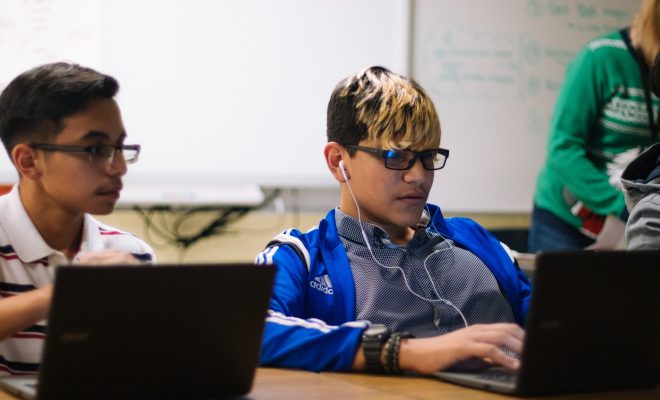Cut Sports, Advance Academics

**The Edvocate is pleased to publish guest posts as way to fuel important conversations surrounding P-20 education in America. The opinions contained within guest posts are those of the authors and do not necessarily reflect the official opinion of The Edvocate or Dr. Matthew Lynch.**
A guest post by Edgar Wilson
We need to get sports out of schools.
As an extra-curricular, sports should already be distinct from academics, but that hasn’t remotely stopped athletic programs from asserting dominance in and out of the classroom. The problem is most pronounced in tertiary education, where university budgets—and, by extension, student fees and tuition—are being coopted to support legacy athletic programs, most notably football.
Football programs—at least in the current conception—are a losing investment for most schools. Maintaining a diversity of athletic options is expensive, and is clearly not supported by the broadcast and viewership patterns of American sports fans. In the US, we want our football, and we want our basketball, and we want it for free.
These same consumer forces upsetting other pillars of the entertainment industry—music, movies, television—are beginning to cripple cable: streaming services.
Disney has been making headlines since the release of its new Star Wars sequel not only because of the record-breaking box office numbers the film is generating, but because the company is still managing to bleed money due to decreasing cable subscriptions, a pattern that undermines the value of its ESPN channels, and the associated advertising revenues.
Broadcasting college sports just can’t guarantee the same returns that made it such a popular money-maker in the past.
Beyond the backwards financial machinations of college sports, there is the fact that, overwhelmingly, K-12 sports are falling into a pay-to-play format that is fundamentally exclusionary. What merit can a sports program have as an avenue for poor or at-risk students to access college, if the cost of participation already bars them from playing in high school?
Yet at the collegiate level, sports teams have become the tent pole holding up the entire institution:
- Rather than marketing the university based on academics, professional outcomes, research opportunities or expert faculty, their record of athletic accomplishment gets the most publicity
- Individual payouts are larger (yet fewer) for athletic scholarships, creating a competitive, high-stakes sports culture that trickles down through secondary and even primary school programs
- Universities must compete in terms of funding, event games, and spectacle in addition to competing on the field of play
In short, the whole mission and focus of universities pivots to accommodate athletics with increasing urgency.
Compromise abounds—even the United States Naval Academy, which graduates over a thousand students with Bachelor of Science degrees while simultaneously training them as officers for the U.S. Navy every year, has augmented its historically high standards to allow its student athletes to compete at the same level as schools lacking its demanding duel mission. Ditto for West Point.
Beyond lowering the bar for education itself, the troubling school-sports marriage is proving hazardous to the health of student athletes—at every level and age cohort.
The medical data coming out on the punishing long-term effects of athletic injuries, overexertion, and cumulative trauma from youth sports is damning. Whether or not it pays off in the form of discounted tuition or admission to a prestigious school, young jocks in full contact sports can more or less count on legacy injuries dogging them for life.
Outside the high-visibility, high-risk arena of football, research indicates that a hyper-competitive culture that prioritizes specialization leaves any youth athletes at risk of chronic injury. It isn’t that the sports themselves are bad, just that the culture surrounding them has made them so. Technophiles look to science to solve the problem of inherently violent contact sports, only to discover that the culture—not the equipment—is what needs to change to save lives.
The compromise of academics to accommodate athletes is troubling. The conflict of interest for universities, students, the public, and the myriad companies and industries that profit of collegiate sports is fundamentally undermining the purpose and potential of American higher education.
Institutions of learning should support student missions of learning—not athletics.
____
Edgar Wilson is an Oregon native with a passion for cooking, trivia, and politics. He studied conflict resolution and international relations and has worked in industries ranging from international marketing to broadcast journalism. He is currently working as an independent analytical consultant. He can be reached via email here or on Twitter @EdgarTwilson.






